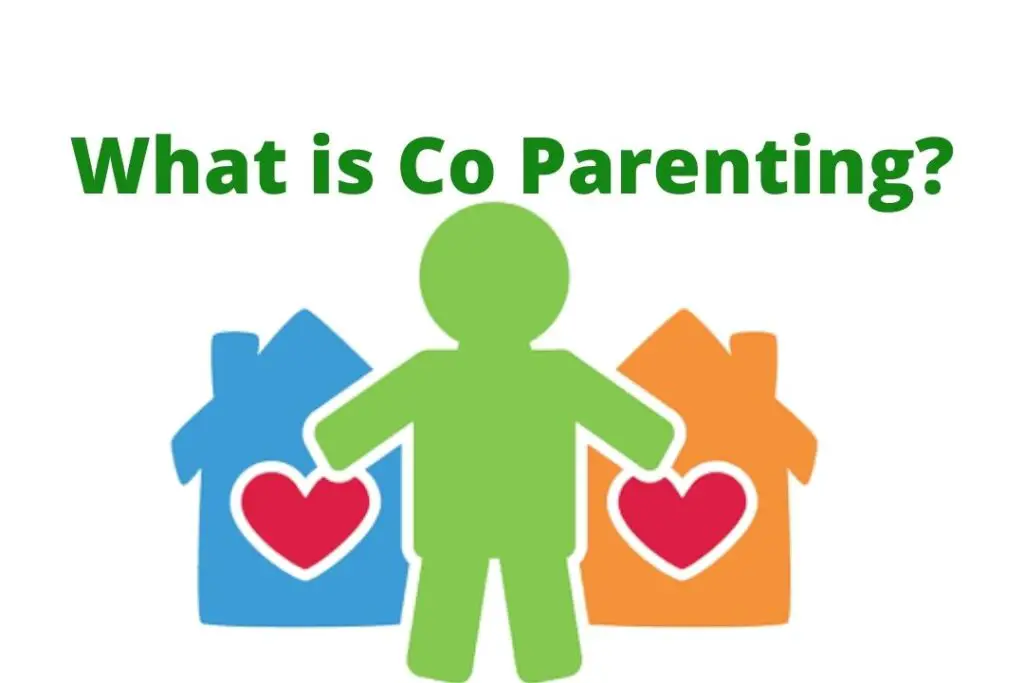Cooperative Co Parenting will provide your children a sense of security and unwavering affection when their biological parents divorce or break up. A lack of co-parent collaboration can lead to tension, unfavorable sentiments against each other, which can lead to animosity and more dispute.
While it may be difficult to overcome the first difficulties of co-parenting your children together, the relationship may be mutually beneficial and result in your children’s happiness and general growth.
What is Co Parenting?
In the case of non-married parents who share parenting duties, co-parenting is a kind of parenting in which both parents are equally responsible for raising the kid. For example, parents who are not married, living together, or engaged in romantic and conventional couple-like relationships with each other may be in a circumstance where their children are affected.
Parents who are divorced or separated in the United States of America often use the term “co-parenting” to refer to the shared duty of raising their children.
What is the Principle of Co Parenting?
Some of our finest ideas for co-parenting are as follows:
- In the event of a separation or divorce, a kid will always be entitled to the same kind of connection with both parents. Unless one of the parents is ruled unsuitable for the child’s safety and welfare, the same will be applied in all circumstances. In these situations, a ruling authority will determine which parent has the primary parental responsibilities.
- It is founded on the idea that when you become a parent, you have the obligation of prioritising the health and happiness of your children as a top priority.
- Changes in your relationship with your ex-partner shouldn’t affect how you interact with your children. If you and your spouse are separated or divorced, it should not affect your relationship with your children.
- Co-parenting is based on the idea that children should have equal access to both parents, rather than just one of them. As a result, it thinks that when both parents are involved in raising the kid, it will be more advantageous for the child’s entire growth and well-being.
Co Parenting and Living under the same roof during pandemic
The pandemic has undoubtedly altered our lives; nonetheless, our daily routines in our houses have remained unaffected by the epidemic. Stress levels skyrocketed as a result of everyone being confined to their homes due to the weather.
As of right moment, divorce and separation processes are taking a long time, and many couples are unable to leave their homes because of financial or other reasons.
With no way to go away, people are being forced to engage on a breakup journey and co-parenting.
When it comes to dealing with this issue, the current status of the globe makes it even more difficult. And so, how can you get over a breakup, figure out how to co-parent, and share a house with someone you don’t want to be with?
Relationship in Co Parenting
Despite the fact that you’ve chosen to end your relationship, you still need to work together to ensure that your children are safe, secure, and loved. Even if you’ve chosen to call it quits on your relationship, you still have work to do to repair the damage done. Cooperative, contentious, or parallel separating parents are the most common.
- Cooperative parenting: Children benefit from parents who are willing to compromise and communicate with each other in order to help them succeed.
- Conflicted parenting: Parenting that is riven with strife occurs when parents disagree on how to raise their children.
- Parallel parenting: The parents don’t speak with each other, and the children exist in two separate realms that are not connected to each other.
You face the danger of conflicted parenting since you can’t move away from the split because you’re both living in the same place. Because co-parenting is undoubtedly the desired outcome, having both co-parents living under the same roof allows you to work toward making this reality. Because your children will shield from conflict, bad sentiments, or thoughts about your co-parent if you don’t have the emotional capacity to co parent yet, parallel parenting is a viable alternative.
Routine & Conflicts in Co Parenting
Create a habit by sitting down with each other. Which of the following is true: Who is going to do what at what time, and where? Having a schedule can help ease the transition to living under two roofs since it decreases misunderstanding, provides both co-parents with room to recover, and reduces children’s anxiety about what to anticipate on a daily basis.
Set Boundaries in Co Parenting
Set a few limits. If required, you can divide the house, share the bedroom, and divide the tasks. Guests, appointments, and everything else involving your children should be subject to regulations. Because sharing a home with your ex might have a detrimental impact on your mental health, it’s important to learn to better manage routine and worry. You may make a new acquaintance.
Parents who compelled to share a roof with their ex-partners sometimes feel resentful and furious. Arguing is inevitable, but the trick is to do so in a place where your children cannot hear or see you.
Urgency is often the aftermath of a breakup. There’s a pressing need to heal and move on, and doing so while still sharing a home is challenging. Keep your cool. Your children will benefit from the strength you both get from working through this difficult circumstance together. Both you and the narrator did not request this.
Tips for Successful Co-Parenting Even When You’re Living Apart
Staying apart yet cohabiting in the midst of a messy divorce may seem counterproductive. Some parents, however, see it as the greatest method to address the needs of their children. Particularly if they have shared custody of the children.
I don’t know how they do it. Their relationship will restructure. To avoid treading on each other’s toes, this strategy allows both parties to co-parent freely.
To make this kind of relationship work, both parties must be open and honest with one another. When it comes to such a “relationship,” it isn’t only about keeping the facade up. If only for the sake of the kids, you can put up a show that you’re together.
Those couples that are able to make it work openly tell their children about their relationship status. Observation? They’re going to wait till their children are old enough to appreciate the nuances of dating.
After a divorce, it’s only logical to divide into two households. However, some people have come up with alternative methods. To understand more about how living together might be beneficial, keep reading.
When Common Lost
Children suffer greatly as a result of divorce. Yet research shows that parents who choose to stay together for their children generally bring more harm than benefit to the youngsters. Everyone is harmed by a turbulent marriage that riddled with resentment and hostility.
Besides, youngsters recognised for their innate sense of smell and taste. They have a knack for spotting the subtleties of interpersonal relationships.
Negative emotions, such as sadness and rage, can spread quickly. Infecting a complete family may rob youngsters of some of the most valuable moments of their childhood.
When a couple realises that they aren’t prepared to raise a child on their own, what happens? Some people opt to stick it out and start over with someone fresh. On the other hand, one that is centered on preserving a polite distance, taking turns parenting, and living together.
Think of their children like roommates who have a same interest. Yes, they live together as a family. It works because they allow each other a lot of room to be themselves.
To put it another way, these co-parents have opted to disregard all logic and reason. However, they haven’t gone about it recklessly. Then then, they wouldn’t suggest it to everyone, either.
Nevertheless, it’s a possibility. As long as both parents are open to re-establishing a bond based on trust and mutual respect.
Separated but Living together: Co Parenting
What are the ramifications of co-parenting in the same house? Taking turns as parents is something that one ex-couple suggests.
This strategy frees up the other to spend quality time with their mature selves. There aren’t any.
Heading back to their room might be all it takes. Going out might also be an option. Off-duty, they no longer have to worry about being a parent.
How do ex-spouses reconcile their differences without allowing their prior hurts interfere? By allowing themselves the time and space to deal with problems in their marriage from the outset.
They are able to pursue an unconventional living arrangement because of their conscious uncoupling. A person who is more concerned with logic and clarity than feelings.
Is it difficult for you to get over the rage? Getting along in a divorce is possible if you follow these guidelines.
Co-parents who live together spend more than a year building the foundation for their relationship. This strategy required a full rethinking of their relationship and personal life.
They communicated openly and honestly at all times. For example, when it came to explaining the arrangement to their children.
Since their connection is so unique, they don’t hesitate to describe it to their children.
When it comes to living together after a divorce, there is a silver lining.
Several co-parents believe that their divorce has given them the capacity to be more supportive of one another. They may have acted in ways that undermined or slandered one another while they were married. As a result, they were left feeling dejected and angry.
Restructuring their relationship helped ex-couples break bad patterns like these. They had moved on from their former relationship’s petty quarrels. Divorce essentially provided them with a fresh start.
A connection based on mutual respect, decency, and common interests was established by them. One of them was devoted to the topic of co-parenting.
In many cases, co-parenting has been easier than expected. Why? Because they’ve had to face the things that made them miserable, such as staying in an uncomfortable marriage.
Sharing parenting or co-parenting with ex-spouses has also allowed them to maintain an unified face. Divorced parents still have to deal with children who try to exploit their situation.
It’s an opportunity for co-parents to band together as youngsters try to figure out which parent is more flexible about this or that.
Co-parenting in the Same House: A Practical Guide
Is there any proof that having two parents in a home has any positive effects on a child? There have been few studies to date.
Research, however, shows that having two parents in a child’s life improves their well-being. In addition to superior development, they also show improved physical health.
Is it possible for most divorced or separated parents to co-parent under the same roof? No, I doubt it. However, several ex-couples vouch for it.
Is it possible that the benefits of living with your ex-spouse outweigh the disadvantages? If that’s the case, you could benefit from some advice from a professional to assist you get through the problem.
These are some of the ideas:
- Clearly stating the connection
- establishing clear guidelines for your interactions with the kids
- Prioritizing one’s duties
- Creating a boundary
- Defining the next actions to take
You may use these recommendations to move forward positively if you take a deeper look at each one.
Creating a New Joint Custody Relationship
Begin by defining your relationship, as demonstrated by the co-parents in the examples above. There’s a continuity of time. In between the two extremes, there are boarders who barely interact with each other at all.
Use this continuum to determine where your relationship sits on the spectrum What may we expect as a result of this?
Create a list of ground rules that will guide your family and your co-parents as you move forward together. You may avoid misunderstandings and wounded feelings by doing so.
The following questions might assist you in determining the parameters of your partnership:
- Will we be able to spend some time together?
- Is our relationship the same as it was before, but without the intimacy?
- Does this mean that we’re both free to date or engage in other romantic endeavours with our close friends or other potential love interests?
It’s true that some of these questions can be tricky. Someone will be wounded if you don’t plainly and honestly put out the guidelines at this point.
Creating Clear Goals for Your Interactions with the Kids
You and your ex-partner need to get down and talk about things like child care. Consider how much time you’ll be able to spend with your loved ones.
For example, will you each take a turn caring for the children? Is it possible for you to run two separate households? Or, are you going to keep up some sort of Friday night game night with the family?
Do you feel like you’re at the stage where you’re arguing about semantics? That’s OK. Emotional discomfort can be avoided if creases ironed out soon.
Making a Decision About Duties
Sit down with your co-parent and talk about the “new” home rules like you would with your roommates. Because you’re living apart but with your children, you need to get on the same page.
How are you going to split up the fridge and the pantry? Who’s going to do the laundry? And what about the trash?
You’ll also need to figure out things like who is accountable for maintaining the yard. When it comes to vehicles, how are they going to be shared? When it comes to utility costs, how will they be divided?
Aiming to Define the Area
In the past, co-parenting was referred to as a “poor man’s divorce.” A clothesline through the middle of the room used to casually hang a blanket.
Fortunately, hotel rooms have gotten a lot bigger over the years. Couples now have the option of dividing their living space. One person can choose to live at the lower level, such as the basement, while the other person can choose to live on the main floor or the upper level.
Any way you define your area, make sure it’s fair and open to everyone involved. Common spaces like the kitchen, garage, lavatory, and pantry will also require your attention. Respect the regulations after this task finished.
Making a Plan of Action
Determine how long the current situation expected to last before making a decision about how to proceed. Until one of the partners saves up enough money to walk out, is it an agreement that will continue? Or, do you and your co-parent want to continue this arrangement until your children are adults?
There are, of course, numerous shades of grey on this spectrum. Some single roommates see a temporary separation within their own walls as a necessary step toward a more long-term objective. This objective might be to make the divorce process easier for the children, or it could be to take financial or emotional measures in the future.
Your coparent and yourself deserve to know the truth, no matter what happens.
Involving Children in the Process of Separation
No, we are not married, but we have a shared custody agreement. Even in the short term, you and your co-parent can get along. There are actions you must do if you want a healthy connection with your partner.
Being divorced yet still living together is what? Maintaining open channels of communication
It’s easy to become bogged down in small talk, but remember this. When it comes to saving money, prevention is worth a pound and a half of cure. For argument-free co-parenting, the same holds true.
When putting up a strategy for cohabiting after a divorce or separation, it can be difficult to know where to begin. Start by drawing out a parenting plan that works for you and your family. You can see everything you need to include in your strategy right here.
Read: What is Step Parenting and How to Raise in Step Family





Pingback: 19 Best Words of Advice for New Parents : Tips for New Mom & Dad
Pingback: When to Change Nipple Size Complete Guide for Parents to Switch Nipple
Pingback: When can Baby Sit in Stroller Without Car Seat | Parents Stock Guide
I have not checked in here for a while because I thought it was getting boring, but the last few posts are great quality so I guess I?¦ll add you back to my everyday bloglist. You deserve it my friend 🙂